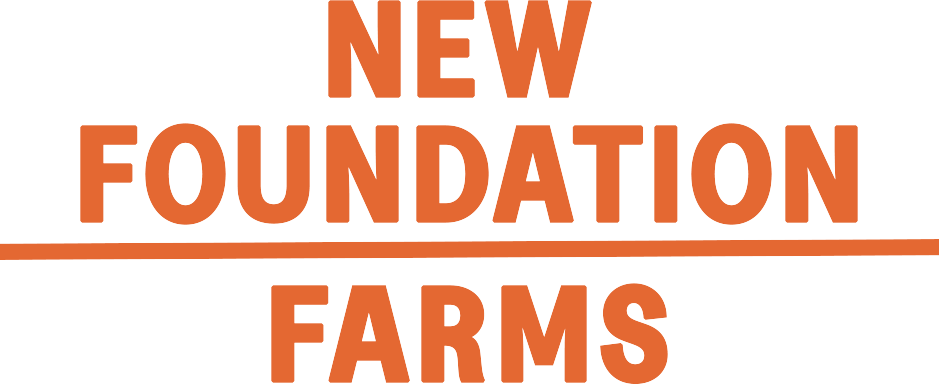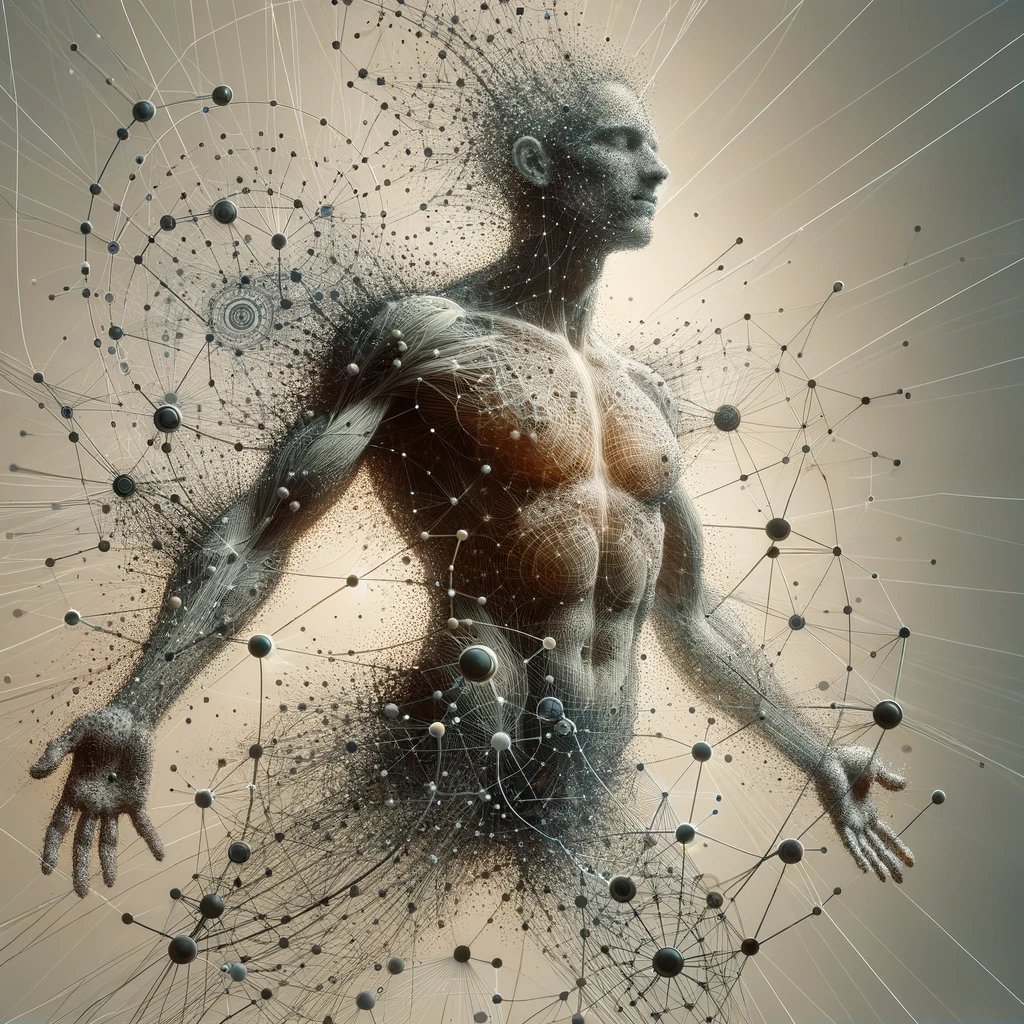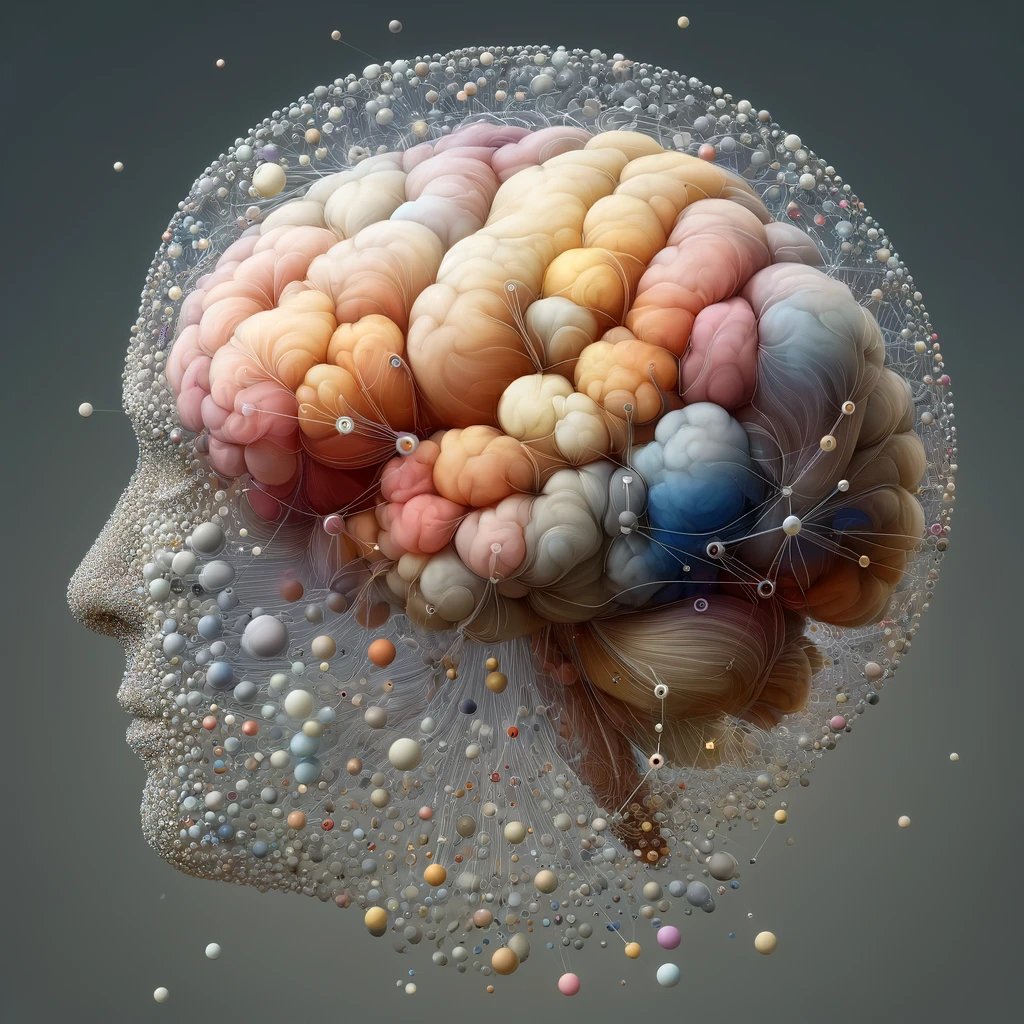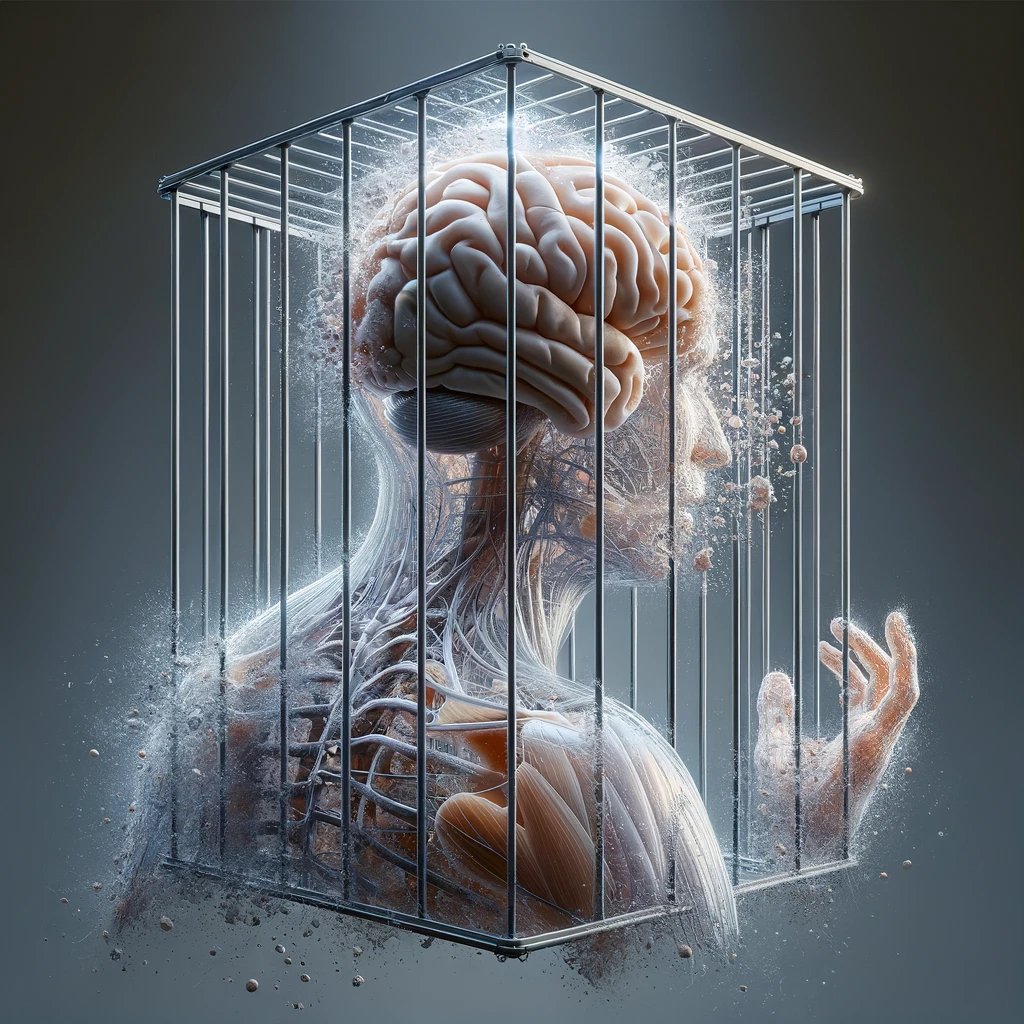Opinions?
You know the old saying about opinions, they’re like…(insert body part), everybody has one!
The problem however with opinions is that they can prevent us from asking the questions we need to be asking, this article will look at what exactly opinions are and how they shape our psyche and what we can potentially do to remove our selves from the burden of them moving to considering the profound implications of truly transcending the lure of opinions.
So first of all what is an opinion?
In psychological terms, an opinion is considered a belief or judgement about something that is not necessarily based on fact or knowledge. It's a subjective perspective, feeling, or thought regarding a particular topic. Unlike facts, which are empirically verifiable, opinions are influenced by personal feelings, beliefs, and experiences, and therefore, can vary widely from person to person.
Psychological Aspects of Opinions
Opinions have a strong cognitive component, involving how individuals process information, interpret it, and form judgements. This cognitive aspect is influenced by existing knowledge, beliefs, and thoughts. Opinions often involve an emotional aspect as well. People might form or hold opinions based on how they feel about a subject, which can be influenced by their values, emotional state, or past experiences.
Opinions are formed through exposure to information, social influences, and individual experiences. They can be influenced by cognitive biases such as confirmation bias, where individuals favour information that confirms their preexisting beliefs, and the availability heuristic, where individuals judge the probability of events based on how easily examples come to mind.
Can our sense of self identity ever be truly free from opinion or beliefs or without them are we nothing?
Opinions can guide behaviour, decision-making, and attitudes towards others and events. They can also influence social interactions and are integral to how individuals express themselves and engage in discussions with others. Social context and cultural background play significant roles in shaping opinions. Socialisation processes, media exposure, education, and peer influences all contribute to how opinions are formed and expressed.
Understanding opinions is crucial in fields like social psychology, where researchers study how opinions influence group dynamics, prejudice, discrimination, and persuasion. Opinions shape and are shaped by social identities and cultural norms, affecting everything from political affiliations to consumer behaviours.
Opinions are not just passive reflections of thoughts; they are active components of how individuals interact with the world, embody their social identities, and make choices that align with their values and beliefs.
How opinions and belief systems are related
Belief systems and opinions are closely related and influence each other. Belief systems provide the underlying values and assumptions from which opinions stem. Opinions can be seen as the manifestations of these deeper beliefs in everyday judgements and preferences. For instance, a person’s belief system might include a strong value placed on environmental conservation, which could shape their opinions on policies related to energy use, public transportation, and waste management.
Additionally, opinions can also reinforce or challenge belief systems. When individuals consistently hold opinions that align with a particular belief system, this can reinforce their commitment to those beliefs. Conversely, when faced with compelling contradictory opinions, individuals might begin to question and potentially revise their underlying belief systems.
While belief systems are comprehensive and foundational frameworks that deeply influence how individuals see the world and behave, opinions are more specific judgements or ideas that can change more readily. Opinions both stem from and can influence belief systems, playing a dynamic role in how individuals interact with and interpret the world around them.
Depth and Stability: Belief systems are generally more deeply rooted and stable than opinions. They consist of core values and understandings that are less likely to be swayed by new information or casual influences. In contrast, opinions are often more superficial and can change more readily in response to new experiences or information.
Structural Complexity: A belief system is comprehensive and interconnected, often providing a broad framework that influences many aspects of an individual's life and interactions. Opinions, however, are usually more isolated judgements or ideas about specific issues or topics.
Foundational vs. Transient: Belief systems form the foundation of an individual’s worldview and are integral to their identity. Opinions, while they can reflect underlying beliefs, are more transient and less likely to define a person’s identity.
Is the self built on opinion and beliefs?
Our sense of self and identity is deeply embedded in our beliefs and opinions. These cognitive elements shape how we see ourselves, how we perceive the world, and how we interact with others. They are foundational to our personal narrative and play a critical role in defining our individuality and group affiliations.
Core Beliefs and Values: At the heart of identity, core beliefs and values act as the pillars that support our understanding of who we are. These beliefs might pertain to spirituality, ethics, political ideologies, or personal principles about what makes life meaningful. They influence our goals, motivations, and behaviour, serving as a personal compass.
Opinions and Social Identity: Opinions help further refine our identity by distinguishing us within and across groups. For instance, our opinions on social issues, art, culture, and politics not only reflect our core beliefs but also signal to others our social and cultural affiliations. These opinions help place us in social networks and communities, reinforcing our sense of identity through shared or contrasted viewpoints.
From a psychological standpoint, identity is not static but a dynamic, evolving construct. Here’s how beliefs and opinions contribute to this process:
Cognitive Consistency: Psychological theories such as cognitive dissonance suggest that we strive for consistency within our beliefs and opinions. Inconsistencies can cause discomfort, prompting us to change or adapt our beliefs and opinions to maintain a coherent sense of self.
Narrative Identity: Psychologists often view personal identity as a narrative we construct about ourselves. This story is built around key life events, values, and the evolving beliefs and opinions we hold. This narrative helps us make sense of our past, navigate our present, and project our future.
Social Identity Theory: This theory posits that our identity is partly shaped by the groups to which we belong. Our beliefs and opinions about these group affiliations (like ethnicity, nationality, or political party) significantly shape how we define ourselves in relation to others.
Constraints and Challenges
While beliefs and opinions are crucial for identity formation, they also pose challenges:
Rigidity: Overly rigid beliefs can prevent personal growth and adaptation to new information or changing circumstances. They can limit our openness to new experiences or alternative perspectives that could enrich our sense of self.
Conflict: Strong beliefs and opinions can lead to conflicts with those who hold different views, potentially isolating us or reinforcing echo chambers where only similar viewpoints are echoed back.
Identity Crisis: Significant life events or profound encounters with diverse worldviews can challenge deeply held beliefs and opinions, leading to an identity crisis. This can destabilise the sense of self but also offer opportunities for significant personal growth and transformation.
Our sense of self and identity is intricately tied to our beliefs and opinions. They not only help us navigate the social world but also play a fundamental role in our internal cognitive and emotional life, shaping how we perceive ourselves and our place in the world. Managing the flexibility and evolution of these beliefs and opinions is key to ensuring they support rather than hinder our personal development.
Can we separate ourselves from our beliefs and opinions?
From a psychological standpoint, beliefs and opinions help organize our experiences and guide our behaviors, serving as frameworks for understanding the world. They are not only reflections of our knowledge and experiences but also tools for prediction, social interaction, and personal decision-making. Without these frameworks, an individual would likely struggle to make sense of sensory inputs and social cues, which are essential for navigating everyday life.
Developmental Psychology: The development of self in children is closely tied to the development of cognitive abilities, including the ability to form beliefs and opinions. As children grow, they learn not only factual information about the world but also develop preferences, beliefs, and opinions that help them establish their individual identities.
Existential and Phenomenological Philosophy: These branches of philosophy delve into the essence of being and consciousness. Some existential thinkers have posited that the core self might exist independent of explicit beliefs and opinions, focusing instead on the mere experience of being. Phenomenology emphasizes direct experience and the subjective perception of phenomena, suggesting that a pure consciousness might be able to exist, observing without the need to form judgments or beliefs.
Buddhist Psychology: In some schools of Buddhist thought, there is an exploration of the concept of "anatta" or "anatman," which means non-self. This doctrine suggests that the idea of a permanent, unchanging self is an illusion and that liberation (nirvana) involves seeing beyond these illusions, including the transcendence of personal beliefs and opinions. This perspective suggests a state of consciousness where awareness exists but is not attached to any specific beliefs or identity markers.
In practical terms, while individuals can certainly strive to minimize the influence of personal beliefs and opinions on their perception of self, completely eliminating these aspects would be extraordinarily difficult. Beliefs and opinions are not just about preferences or ideologies; they include basic assumptions about reality that are necessary for mental and social functioning. For example, belief in the reliability of sensory experiences or trust in certain social structures is fundamental for everyday interactions and wellbeing.
A theoretical exploration of self without beliefs or opinions might involve a state of pure consciousness—a kind of meditative or transcendent experience where the mind observes without attachment to any thoughts or judgments. Such states are often described in mystic and spiritual experiences, where the boundaries of ego and constructed identity dissolve.
In conclusion, while beliefs and opinions are standard components of the human psychological makeup, philosophical and some spiritual teachings suggest the possibility of experiencing a sense of self that transcends these elements. This transcendence is typically seen as a deep state of awareness or enlightenment rather than a practical everyday state.
Our brains are energy hungry and essentially lazy by evolutionary design
The biological component
The human brain is indeed an energy-intensive organ. Despite accounting for only about 2% of the body's weight, it consumes approximately 20% of the body's total energy. This high demand is primarily due to the brain's complex tasks of processing sensory information, controlling physical actions, and executing cognitive functions such as thinking, learning, and memory.
Given its high energy demands, the brain has evolved strategies for energy efficiency. One of these strategies involves the formation of beliefs and opinions, which serve as cognitive shortcuts. These cognitive frameworks help the brain streamline the processing of information by reducing the need for active analysis of every piece of incoming data, especially in complex or ambiguous situations.
The brain is highly adept at recognising patterns and can predict future occurrences based on past experiences, reducing the need for detailed processing of every subsequent related event. Beliefs and opinions are part of these patterns, enabling the brain to quickly categorise and respond to new information based on previously stored knowledge.
Cognitive psychologists have identified several heuristics, or mental shortcuts, that people use to make quick decisions. Beliefs and opinions often underpin these heuristics, guiding decisions without the need for detailed analysis. For instance, if someone strongly believes that a certain political party always acts in the best interest of the environment, they might vote for that party's candidates without researching their specific policies each time.
The Role of the Default Mode Network (DMN)
The Default Mode Network (DMN) is a network of brain regions that shows increased activity when the brain is at wakeful rest and not focused on the outside world. It is involved in self-referential thoughts and the contemplation of one's beliefs and experiences. This network is thought to be energy-efficient in maintaining long-term internal focus, such as reflecting on personal beliefs and integrating them with one's self-concept and worldview. This integration helps streamline mental processing by solidifying the frameworks (beliefs and opinions) through which new information is filtered.
Cognitive and Energy Conservation
Ultimately, the reliance on beliefs and opinions can be seen as part of the brain’s broader strategy to conserve cognitive resources. By minimising the need for in-depth analysis of every new situation, beliefs and opinions free up cognitive resources for other tasks. This is advantageous for energy conservation but can also lead to cognitive biases and errors if the reliance on fixed beliefs becomes too rigid.
From a neuroscientific perspective, beliefs and opinions serve essential roles in making cognitive processing more efficient. They help reduce the energy cost of brain functions by allowing for quicker decision-making based on less analysis, thus conserving cognitive resources for other demanding tasks. However, while this strategy benefits energy conservation, it also highlights the importance of occasionally challenging our beliefs and opinions to avoid the pitfalls of overly heuristic thinking.
The brain is like a muscle, use it or lose it
From a scientific perspective, the idea that the brain is like a muscle that needs exercising encompasses engaging in cognitive challenges, learning new skills, maintaining physical fitness, and managing mental health. Brain plasticity, or neuroplasticity, refers to the brain's ability to change and adapt as a result of experience. This can include the growth of new neurons (neurogenesis), the strengthening of connections between neurons (synaptic plasticity), and the creation of new neural pathways or the alteration of existing ones. Brain plasticity is fundamental to learning new skills, adapting to changes, recovering from brain injuries, and general cognitive functioning.
Can we move beyond our beliefs and opinions and why would we want to
Only by escaping the prison of belief and opinion can we be free enough to really make a change
In practical terms, while individuals can certainly strive to minimise the influence of personal beliefs and opinions on their perception of self, completely eliminating these aspects would be extraordinarily difficult. Beliefs and opinions are not just about preferences or ideologies; they include basic assumptions about reality that are necessary for mental and social functioning. For example, belief in the reliability of sensory experiences or trust in certain social structures is fundamental for everyday interactions and wellbeing.
The idea of moving beyond our beliefs and opinions touches on profound themes such as knowledge, truth, personal growth, and enlightenment. Various philosophical traditions explore why and how one might transcend their firmly held views.
Pursuit of Truth: In classical philosophy, beliefs and opinions are often seen as subjective and potentially misleading, contrasting with objective truth. Plato distinguished between doxa (opinion) and episteme (knowledge), suggesting that true knowledge involves grasping the underlying realities that opinions can only partially represent. Therefore, moving beyond opinions could allow for a more objective understanding of the world.
Personal and Spiritual Growth: Many philosophical and spiritual traditions advocate for personal growth through transcending personal biases and limited perspectives. For instance, Buddhist philosophy introduces the concept of "anatta" or "non-self," which suggests that enlightenment involves seeing beyond ego-bound identities constructed by beliefs and opinions, thereby achieving freedom from suffering and realization of universal truths.
Ethical and Compassionate Living: Ethically, transcending personal beliefs and opinions can lead to a more compassionate and inclusive worldview. Philosophers like Immanuel Kant emphasised the importance of acting according to universal maxims rather than personal inclinations. Similarly, modern thinkers such as Jürgen Habermas promote the idea of communicative action, where individuals transcend subjective viewpoints to engage in dialogue based on mutual understanding and consensus, fostering a more ethical society.
Openly engaging with people who hold different beliefs can challenge and potentially broaden our own perspectives. This approach is related to the Socratic method of dialogue, where questioning and critically examining beliefs and opinions lead to deeper understanding and insight.
Practices such as meditation, contemplation, and other reflective exercises can help individuals observe their thoughts and beliefs without attachment. This fosters a mental environment conducive to questioning and moving beyond personal opinions.
Moving beyond beliefs and opinions is valued as a pathway to deeper truths, personal and spiritual growth, and a more ethical and compassionate world. It involves recognising the limitations of our perspectives and striving for broader, more inclusive understanding. This endeavour not only enriches our interactions with the world and others but is also seen as a worthy pursuit in both personal and societal contexts.
So what this got to do with farming and changing the food system?
At New Foundation Farms, our ambition transcends the mere amelioration of current farming and food systems; we seek a profound reinvention of the entire structure. This radical transformation is unattainable if we remain shackled by our prevailing patterns of belief and opinion. Our goal is not merely to patch the existing system but to fundamentally reimagine it. While we are not akin to monks pursuing spiritual enlightenment through the dissolution of boundaries between self and the universe, we recognise the profound limitations imposed by rigid adherence to established opinions and beliefs. These can stifle the innovation necessary for such sweeping reform.
The act of freeing ourselves from entrenched beliefs and opinions is akin to clearing the fog from our lenses of perception. It diminishes the risk of confirmation bias—a severe impediment in the agnostic line of inquiry essential for addressing complex issues. Such bias can cloud our judgment, restricting us to familiar paths and known quantities, thus preventing us from asking the incisive questions that lead to true innovation.
In the realm of social discourse, it is often suggested to steer clear of topics like religion or politics to avoid conflict. Similarly, discussions about food choices can evoke strong personal and identity-linked responses. Yet, to move forward with genuine freedom—and to keep our intellectual pursuits active, flexible, and insatiably curious—we must challenge these personal and culturally ingrained perceptions.
Within our collective at New Foundation Farms, we embrace a culture of intellectual bravery, where challenging one another's viewpoints is not only encouraged but expected. Each member of our team is on a unique journey of personal evolution, yet we are united in our shared pursuit of knowledge, understanding, and growth. Through this dynamic interplay of ideas, we foster an environment where personal development parallels our collective quest.
Breaking free from the dominant Western agricultural paradigms allows us to embrace a wider array of knowledge, including indigenous and local farming practices. This inclusion enriches our dialogue, posing questions like, "How can indigenous knowledge systems be integrated into contemporary agricultural practices?" and "What can traditional farming techniques teach us about resilience and sustainability?" These questions do not merely seek answers but provoke a deeper reflection on the kind of future we aspire to craft.
It is only by liberating ourselves from the constraints we have constructed—by transcending the familiar and venturing into the uncharted—that we can begin to formulate the fundamental questions that underpin transformative change. And it is through this rigorous questioning that we can hope to uncover the innovative solutions necessary for a sustainable and equitable food future.



